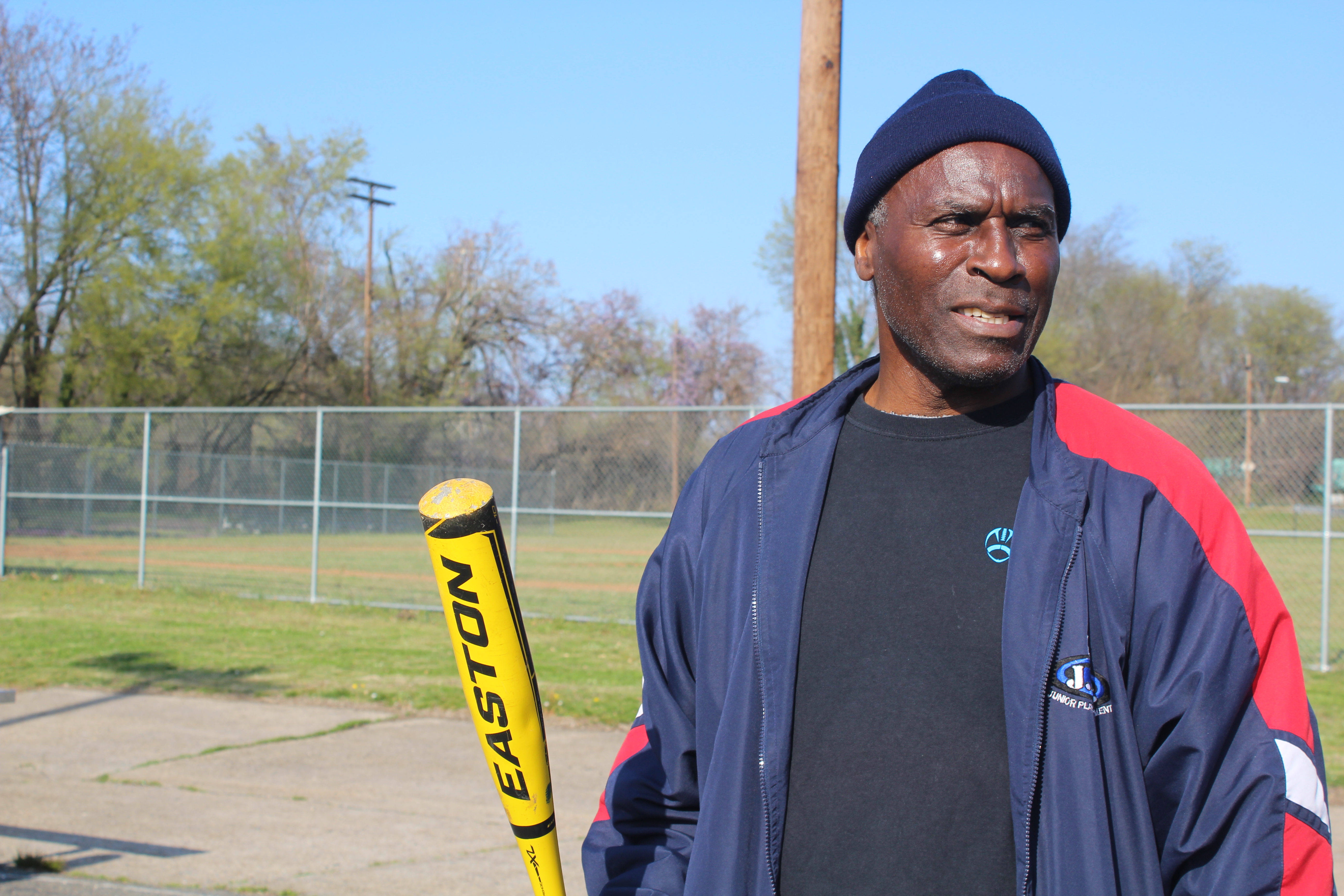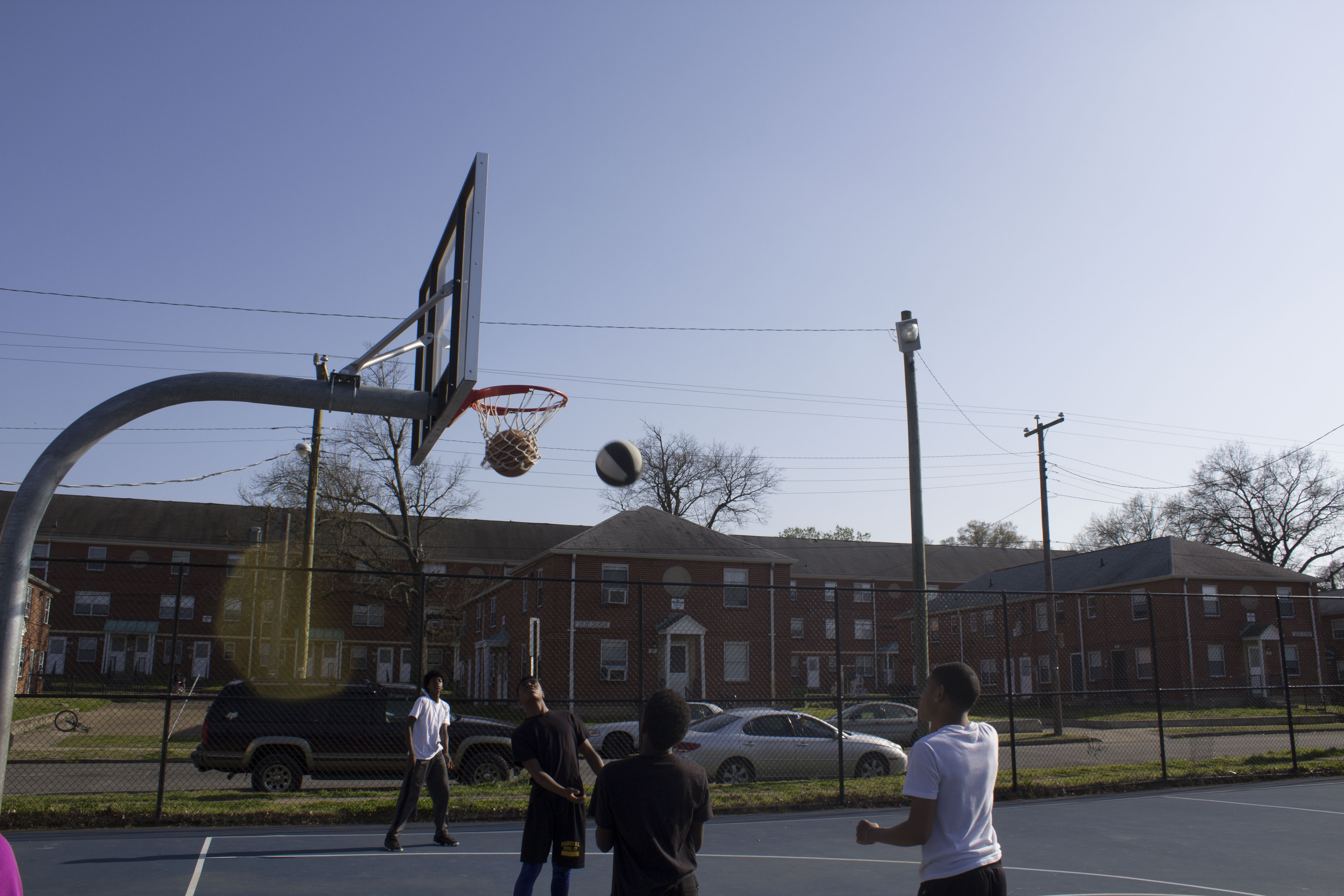
Former NFL player Anthony Leonard stands outside Gilpin Court’s only basketball court. (Photos by Nidhi Sharma)
by Nidhi Sharma
Anthony Leonard is a bull underneath his soft edges, hiding in plain sight. On most days, the former San Francisco 49ers cornerback plays pick-up basketball with kids at a resource center in Gilpin Court, a government housing project in the heart of Jackson Ward.
To the young people who come to the Gilpin Resource Center’s after-school program, Leonard is simply “coach.” His voice doesn’t carry far over the sound of a dozen sneakers scraping the court, but the kids hang on to pretty much every word he says.
There’s rhythm in the noise of the game, a tempo of teasing as the ball passes from player to player, a determination on every face. This isn’t just a game, and it isn’t just basketball.
A majority of Gilpin Court’s high school-age kids go to George Wythe High School, according to Leonard. The graduation rate there is just 57 percent.
“A lot of these kids come from troubled homes,” Leonard said. “They come here, they make friends, they have fun. They’re great kids, and they’re great athletes.”
The field a couple yards over is where Leonard’s own athletic career started. In the early days of his childhood, he played football after school right here in Gilpin Court. Eventually, he went on to play for Virginia Union University, the Detroit Lions and finally for the San Francisco 49ers. The field in question sits where it has always been, patchy and green, waiting for its next star athlete.
“I’m done playing now, though,” Leonard said. “I bust my leg to pieces, got 32 stitches. Now I’m here because of these kids.”
Leonard introduces me to every kid who passes by. That’s a great kid, he says—no matter who it is. It’s immediately obvious that Leonard gets them; he was them. These kids are loud. They’re brash and they’re curious, and they love being photographed.
They’re like most kids, but it’s stupid to compare them to the average American child. They’ve grown up with the stigma of having been failed by the system.
Most of the players stand crowded around the hoop, squinting up through the sunshine. One of the kids, Sanorus, makes a shot from all the way across the court – and the crowd goes wild.
He introduces me to his friends: “This is James. And this is Long-head, and this one’s named Weirdo,” he jokes. He’s full of joy, and everyone laughs. Leonard smiles down proudly from outside the court.
It’s a look every kid deserves to get.

